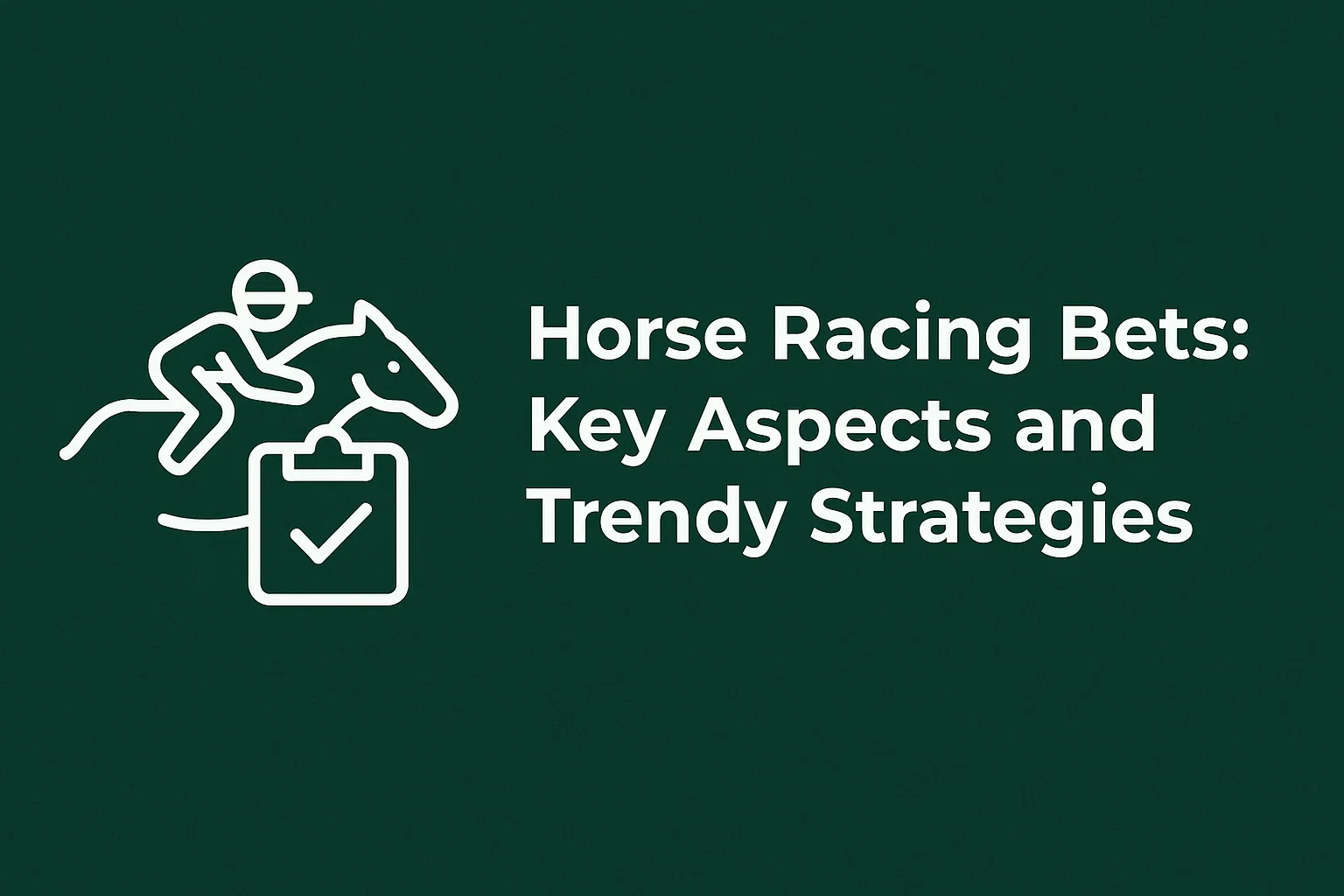Horse Racing Bets: Key Aspects and Trendy Strategies

Nowadays, bookmakers are largely associated with football and several other popular sports, but the culture of betting started with horse racing. At the start of the last century, English gentlemen would gather at racetracks to watch jockeys ride their horses to the finish line. Of course, with the popularity of ball sports, horse racing was out of favor, yet lots of admirers of this sport are still here. And betting doesn't need to involve a journey to a racecourse anymore — good horse racing betting sites now allow you to place bets from home.
Types of Horse Racing Bets
Horse racing bets are unique in nature. A punter will never see the typical "1X2" stakes, totals, or handicaps in horse racing betting. The terminology is diverse as well, and the popular bet types are:
- Win. It is a wager on what horse wins the race. You must predict which horse will cross the line first. You can bet on a dark horse by wagering against the horse winning. Even if the horse only wins second, the wager is a success, but such payouts are usually low probability.
- Place. A shorter form of a Win bet. Players choose a favorite but the horse only needs to be among the top to win, based on the race. In an example when 8 horses are running, your favorite needs to be first or second; if over 14 horses are running, the top four win.
- Double. The player predicts the winners of two separate races. It's sort of like a parlay.
- Double Double. This is a bet where you pick the winners of four races.
- Exacta. The bettor, in this instance, not only picks the winner but also the second-best horse.
Betting on horse racing is not complicated if you know the rules and nomenclature.
Horse Racing Betting Strategies
Even professional gamblers have some methods, even for horse racing.
Strategy 1: Betting on Recent Winners
Bettors refer to past race performances to identify sure winners. The strategy involves referring to statistics and news. If a past winner has been running consistently well for the whole season and has been rested adequately, the bettor places a bet on the favorite. It is normally a Win bet, although a Place bet would be less risky with lower odds.
Strategy 2: Jockey-Horse Partnership Strategy
The horse-jockey relationship usually decides the final outcome. This strategy is to select the horse that finished second or third on the previous race. The jockey remains unchanged, and hence, they are familiar with the horse, so it stands a good chance of doing well. The jockey factor is underrated — the odds drop when they switch jockeys, so there is less chance of repeating.
Strategy 3: Betting on a Losing Horse
Bettors seek horses with good past performance that poorly ran recently. When the horse loses, bookmakers reveal other players and may overlook the real potential of the horse. It is a statistical strategy applied by professional players.
How to Bet on Horse Racing
Online horse racing betting has its own nuances, and players must consider them in order to be successful.
Key Factors to Consider
Before betting, look at these statistical considerations:
- Age of Horse. Younger horses are favorites for short races. For longer distances, experience trumps.
- Gear Change. Break in gear changes can hamper performance, especially for older horses.
- Rest Between Races. Bettors should be aware of race distance and how long it rested in between. For sprinting, a month's rest is best; for longer distances, prolonged rest will be detrimental to performance.
- Weight of Jockey. The typical jockey weighs about 60 kg, except for novices.
- Weather Conditions. Races are held on open courses, so weather changes can influence results — dark horses stand a chance. Bookmakers discourage bets in adverse weather.
Types of Betting Odds
Bookmakers need to be familiar with the different odds offered at different moments:
- AP (Ante-Post) Odds. Published long in advance of the race. Punters who make thorough pre-race studies prefer them.
- ER (Early) Odds. Offered once the runners are confirmed, typically several days ahead of the race.
- ER-Board Odds. Available from the time horses come into the paddock until race time.
- SP (Starting Price) Odds. Offered at the time the race is ready to be started.
Odds on the same horse might be varied, thus bettors select those appropriate to their plan.
Where to Bet Horse Racing
Top bookmakers have extensive horse racing lines. Key factors when selecting a bookmaker are:
- Bookmaker's Experience. Older and experienced bookmakers are more reliable.
- Odds. Bookmakers aim at higher odds and minimal margins.
- Event Coverage. Major bookmakers cover big events, while other bookmakers specialize in smaller competitions.
- Betting Lines. All bookmakers have own results lines, such as combination bets and exotic bets.
- Bonuses and Promotions. Most top bookmakers have promotions that make gambling more appealing.
Useful Tips
- Traditional betting strategies like the Martingale or loss chasing will not work in horse racing — they will drain your bankroll very quickly.
- Don't place a bet on every race. Invest time in studying statistics, bet quietly, and come prepared.
- Avoid favoritism. Betting should never be made out of emotion for a horse or jockey.